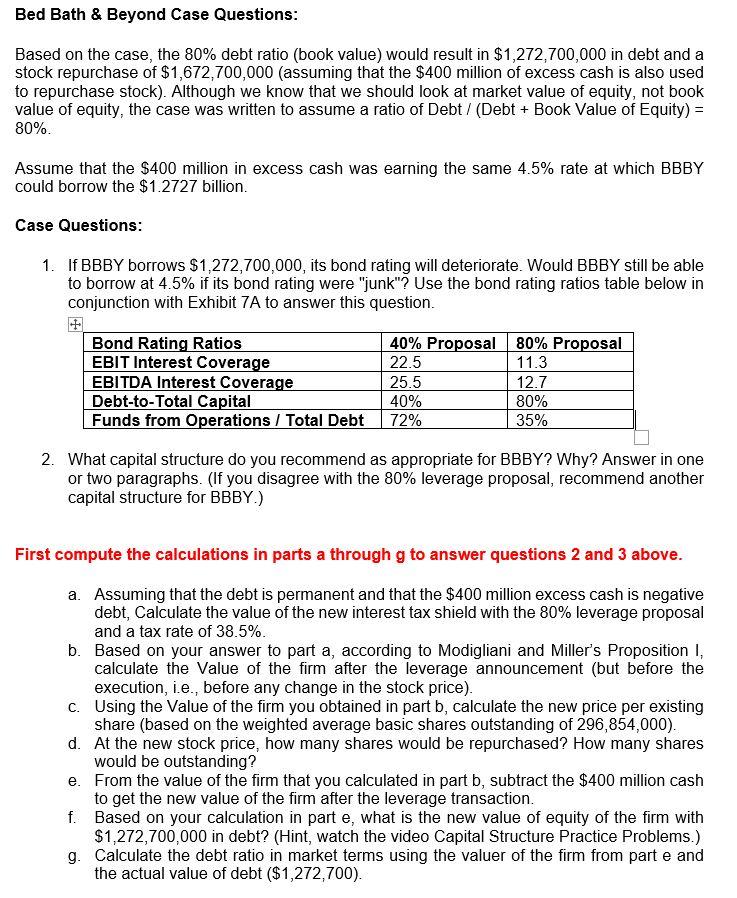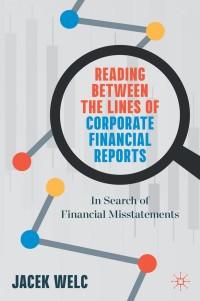
Bed Bath & Beyond Case Questions: Based on the case, the 80% debt ratio (book value) would result in $1,272,700,000 in debt and a stock repurchase of $1,672,700,000 (assuming that the $400 million of excess cash is also used to repurchase stock). Although we know that we should look at market value of equity, not book value of equity, the case was written to assume a ratio of Debt / (Debt + Book Value of Equity) = 80% Assume that the $400 million in excess cash was earning the same 4.5% rate at which BBBY could borrow the $1.2727 billion. Case Questions: 1. If BBBY borrows $1,272,700,000, its bond rating will deteriorate. Would BBBY still be able to borrow at 4.5% if its bond rating were "junk"? Use the bond rating ratios table below in conjunction with Exhibit 7A to answer this question. Bond Rating Ratios EBIT Interest Coverage EBITDA Interest Coverage Debt-to-Total Capital Funds from Operations / Total Debt 40% Proposal 80% Proposal 22.5 11.3 25.5 12.7 40% 80% 72% 35% 2. What capital structure do you recommend as appropriate for BBBY? Why? Answer in one or two paragraphs. (If you disagree with the 80% leverage proposal, recommend another capital structure for BBBY.) First compute the calculations in parts a through g to answer questions 2 and 3 above. a. Assuming that the debt is permanent and that the $400 million excess cash is negative debt, Calculate the value of the new interest tax shield with the 80% leverage proposal and a tax rate of 38.5%. b. Based on your answer to part a, according to Modigliani and Miller's Proposition 1, calculate the value of the firm after the leverage announcement (but before the execution, i.e., before any change in the stock price). C. Using the Value of the firm you obtained in part b, calculate the new price per existing share (based on the weighted average basic shares outstanding of 296,854,000). d. At the new stock price, how many shares would be repurchased? How many shares would be outstanding? e. From the value of the firm that you calculated in part b, subtract the $400 million cash to get the new value of the firm after the leverage transaction. f. Based on your calculation in part e, what is the new value of equity of the firm with $1,272,700,000 in debt? (Hint, watch the video Capital Structure Practice Problems.) g. Calculate the debt ratio in market terms using the valuer of the firm from parte and the actual value of debt ($1,272,700)







